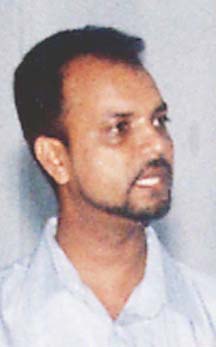Chairman of the Medical Council of Guyana, Dr Sheik Amir said neurosurgery is a huge department in the local health sector, particularly with increases in traffic and mining accidents, but this country has had no resident neurosurgeon for years.
Dr Amir said the situation is not unusual to Guyana since neurosurgery, like many other medical specialties, falls back to general surgeons in the health sector. However, he emphasized that there are limitations.
General surgeons are expected to cover basic neurosurgery, which Dr Amir explained as certain head injuries including some clotting in the brain. He told Stabroek News during a recent interview that brain tumours and other cases which are not as “straightforward”, fall outside of what they can do in general surgery.

He recalled that a neurosurgeon from India was resident here for a few years at Georgetown Public Hospital, and after he left the hospital started working with Dr Ivor Crandon; a Guyanese neurosurgeon based in Jamaica. Dr Crandon travels here occasionally to assist with clinic and surgeries; he visits every two, sometimes three months.
Dr Amir observed that patients in neurosurgery are increasing due to a jump in traffic and mining accidents, in addition to interpersonal violence. He said too that some babies are born with a need for corrective surgery. The relationship with Dr Crandon is solid, Dr Amir said, noting that regular checks are made with him when patients are taken to the hospital. Doctors at public hospital would brief him on cases as they come in and Dr Crandon would offer advice every step of the way as well as determine whether surgery was possible in a particular case.
Cconditions for neurosurgery are not in place here in Guyana, Dr Amir said, adding that certain conditions are critical for post-op care. “There are areas that we are still trying to improve,” he said, noting that this is difficult to do since no neurosurgeon is actively practicing in the country.
But there has been an encouraging sign. Dr Amir said that one of the doctors who came out of the local surgical training programme is leaning towards neurosurgery, but it would take some time before he is equipped to practice here.
During the interview with this newspaper Dr Amir spoke of the challenges the country faces with retaining skilled labour in various sectors. He made reference to the lack of specialists in the health sector, noting that many skilled Guyanese doctors are now working overseas.
Further, he mentioned that some neurosurgery patients would benefit from surgeries overseas based on their chances for recovery. He pointed out that government would subsidise CT scans for patients here which are forwarded to Dr Crandon for his advice. In some cases, he said, the National Insurance Scheme (NIS) would make advance payments to assist in meeting costs.





